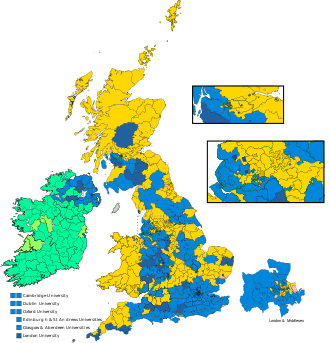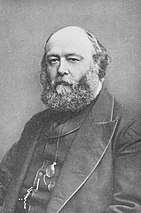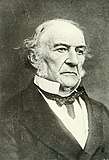1892 United Kingdom general election
The 1892 United Kingdom general election was held from 4 to 26 July 1892. It saw the Conservatives, led by Lord Salisbury again win the greatest number of seats, but no longer a majority as William Ewart Gladstone's Liberals won 80 more seats than in the 1886 general election. The Liberal Unionists who had previously supported the Conservative government saw their vote and seat numbers go down.
| |||||||||||||||||||||||||||||||||||||||||||||
All 670 seats in the House of Commons 336 seats needed for a majority | |||||||||||||||||||||||||||||||||||||||||||||
|---|---|---|---|---|---|---|---|---|---|---|---|---|---|---|---|---|---|---|---|---|---|---|---|---|---|---|---|---|---|---|---|---|---|---|---|---|---|---|---|---|---|---|---|---|---|
| |||||||||||||||||||||||||||||||||||||||||||||
 Colours denote the winning party | |||||||||||||||||||||||||||||||||||||||||||||
| |||||||||||||||||||||||||||||||||||||||||||||
Despite being split between Parnellite and anti-Parnellite factions, the Irish Nationalist vote held up well. As the Liberals did not have a majority on their own, Salisbury refused to resign on hearing the election results and waited to be defeated in a vote of no confidence on 11 August. Gladstone formed a minority government dependent on Irish Nationalist support.
The Liberals had engaged in failed attempts at reunification between 1886 and 1887. Gladstone however was able to retain control of much of the Liberal party machinery, particularly the National Liberal Federation. Gladstone used the annual NLF meetings as a platform to consolidate various Liberal causes, particularly the Newcastle meeting of 1891, which gave its name to the radical Newcastle Programme. This programme placed Irish Home Rule first, followed by Welsh and Scottish disestablishment, reduction in factory work hours, free education, electoral reform, land reform, reform or abolition of the House of Lords, and the removal of duties on basic foods. This programme would later be disowned by the party leadership following the Liberal defeat in the 1895 election (Haigh 1990, p. 259).
Results
| 271 | 72 | 9 | 314 | 4 |
| Liberal | INF | INL | Conservative & Lib. Unionist |
| Candidates | Votes | ||||||||||
|---|---|---|---|---|---|---|---|---|---|---|---|
| Party | Leader | Stood | Elected | Gained | Unseated | Net | % of total | % | No. | Net % | |
| Conservative & Lib. Unionist | 606 | 314 | 21 | 100 | −79 | 46.87 | 46.99 | 2,028,586 | −4.4 | ||
| Liberal | 535 | 271 | 98 | 19 | +79 | 40.44 | 45.37 | 1,958,598 | +0.2 | ||
| Irish National Federation | 85 | 72 | +72 | 10.75 | 5.20 | 224,528 | N/A | ||||
| Irish National League | 44 | 9 | +9 | 1.34 | 1.55 | 67,119 | N/A | ||||
| Independent Labour | 9 | 3 | 3 | 0 | +3 | 0.45 | 0.51 | 22,198 | N/A | ||
| Ind. Conservative | 4 | 0 | 0 | 0 | 0 | 0 | 0.13 | 5,556 | N/A | ||
| Independent Liberal | 6 | 1 | 1 | 0 | +1 | 0.15 | 0.08 | 3,572 | N/A | ||
| Scottish Trades Councils | 4 | 0 | 0 | 0 | 0 | 0 | 0.05 | 2,313 | N/A | ||
| Independent Nationalist | 2 | 0 | 0 | 0 | 0 | 0 | 0.05 | 2,180 | N/A | ||
| Scottish Parliamentary Labour | Keir Hardie | 3 | 0 | 0 | 0 | 0 | 0 | 0.04 | 1,866 | N/A | |
| Social Democratic Federation | 2 | 0 | 0 | 0 | 0 | 0 | 0.02 | 659 | N/A | ||
| Independent | 3 | 0 | 0 | 0 | 0 | 0 | 0.00 | 137 | N/A | ||
Voting summary
Seats summary
See also
Notes
- All parties shown.
References
- Blaxill, Luke. From: The War of Words: The Language of British Elections, 1880–1922 (2020) pp. 81–123.
- Cawood, Ian (2010), "The 1892 General Election and the Eclipse of the Liberal Unionists", Parliamentary History, 29 (3): 331–357, doi:10.1111/j.1750-0206.2010.00137.x
- Cawood, Ian (2013), "The Unionist 'Compact' in West Midland Politics 1891–1895", Midland History
- Craig, F. W. S. (1989), British Electoral Facts: 1832–1987, Dartmouth: Gower, ISBN 0900178302
- Craig, F. W. S. (1974), British Parliamentary Election Results 1885–1918, Macmillan
- "From the archive, 26 July 1892: Britain's first Asian MP elected", The Guardian, 26 July 2013, retrieved 2 May 2018
- Haigh, Christopher, ed. (1990), The Cambridge Historical Encyclopedia of Great Britain and Ireland, Cambridge University Press, ISBN 9780521395526
- Lloyd-Jones, Naomi (2020). "The 1892 general election in England: Home Rule, the Newcastle programme and positive Unionism". Historical Research. 93 (259): 73–104. doi:10.1093/hisres/htz009.
- Pelling, Henry (1967), Social Geography of British Elections 1885–1910


_p4.697_JUSTIN_Mc_CARTHY_M.P..jpg)